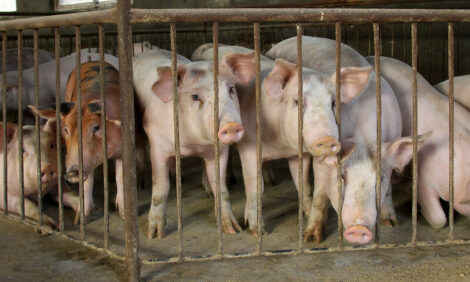Eating Less Meat May Slow Climate Change
UK - Eating less meat could help slow global warming by reducing the number of livestock and thereby decreasing the amount of methane flatulence from the animals, say scientists.
 |
| A woman buys pork meat at a farmer's market in Havana, Cuba on Friday, Sep. 7, 2007. With Raul Castro in charge, Cuba has raised payments to milk and meat producers, cleared up debts with small farmers and cooperatives and stopped blocking imports of the parts needed to keep vintage cars rumbling along. |
In a special energy and health series, organised medical journal The Lancet, experts said that reducing global red meat consumption by 10 percent would cut the gases emitted by cows, sheep and goats that contribute to global warming.
"We are at a significant tipping point," said Geri Brewster, a nutritionist at Northern Westchester Hospital in New York. "If people knew that they were threatening the environment by eating more meat, they might think twice before ordering a burger."
Other ways of reducing greenhouse gases from farming practices, like feeding animals higher-quality grains, would only have a limited impact on cutting emissions. Gases from animals destined for dinner plates account for nearly a quarter of all emissions worldwide.
"That leaves reducing demand for meat as the only real option," said Dr. John Powles, a public health expert at Cambridge University.
The amount of meat eaten varies considerably worldwide. In developed countries, people typically eat about 224 grams per day. But in Africa, most people only get about 31 grams a day.
With demand for meat increasing worldwide, experts worry that this increased livestock production will mean more gases like methane and nitrous oxide heating up the atmosphere.
Dr Powles said that if the global average were 90 grams per day, that would prevent the levels of gases from speeding up climate change.
Powles and his co-authors also suggest that reducing meat consumption would reduce the numbers of people with heart disease and cancer. One study has estimated that the risk of colorectal cancer drops by about a third for every 100 grams of red meat that is cut out of your diet.
Source: abcnews
For more information on the health and energy series click here
Further Reading













